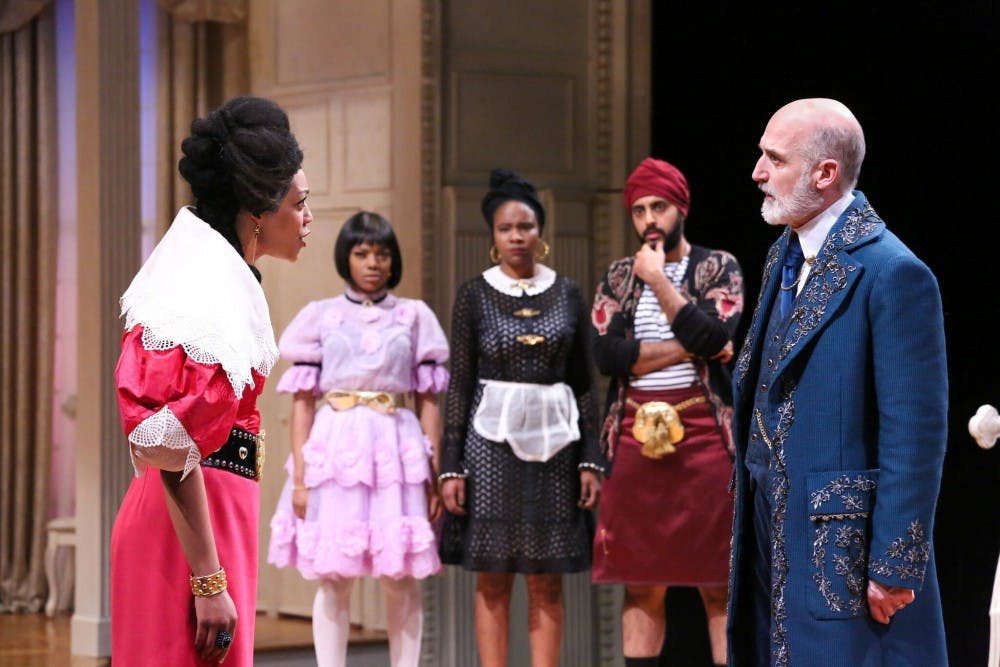What does it mean to believe something and how does that impact our lives in big and small ways? Can people disagree and still love each other?
Those were the questions that the PlayMakers Repertory Company cast has considered as they put on their renditions of Molière’s "Tartuffe," adapted by David Ball and directed by Saheem Ali, and "The Christians," by Lucas Hnath and directed by Preston Lane.
Joey Collins, who played Tartuffe in "Tartuffe" and the pastor in "The Christians," said that the plays' themes were a search for truth. The two plays portrayed these similar themes using different styles.
In "Tartuffe," the characters are looking outside of themselves for truth while trying to convince the main character that the wool is bring pulled over his eyes, said Michael Perlman, the artistic associate for PlayMakers. In "The Christians," he said the characters are looking within themselves to figure out what they believe after a controversial issue is presented to them at church. Collins said there are five unique characters speaking their own truth, with no true antagonist.
To communicate the themes to the audience, "The Christians" was set up as a church service, almost as if the audience was the congregation. With this setup, the audience could introspectively look at what they thought about the issues the play discussed.
Nemuna Ceesay, who plays Elmire in "Tartuffe" and the Pastor’s Wife in "The Christians," said that she loved how theater provided a platform for controversial topics like truth and religion. She said watching a play has a similar impact to a dialogue in that the audience has to formulate its own opinion, but there is less pressure because people are sitting back and listening.
Members of the cast explained that both plays explore issues that are relevant in today's world, even though "Tartuffe" premiered in the 17th century.
“One of the notable things about the play is that what was funny 350 years ago is still funny," Ray Dooley, who played the role of Orgon in "Tartuffe," said. "And what was socially relevant 350 years ago in France is still, to some degree, relevant today. And what was true about human nature 350 years ago is still true about human nature today.”
Some issues that the play discusses are the role of religion in society and the rampant lies that exist in politics. Carlos Alcala, who plays one of Tartuffe’s men in "Tartuffe," said that Tartuffe lies to the general public to attain his own agenda, which draws a comparison to political leaders.




